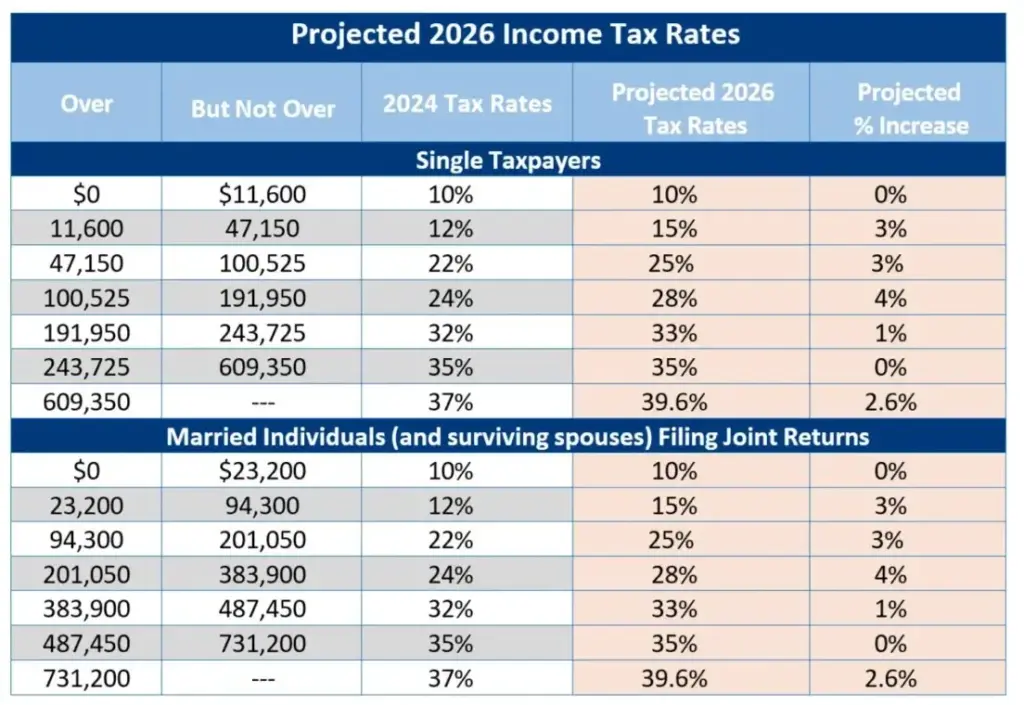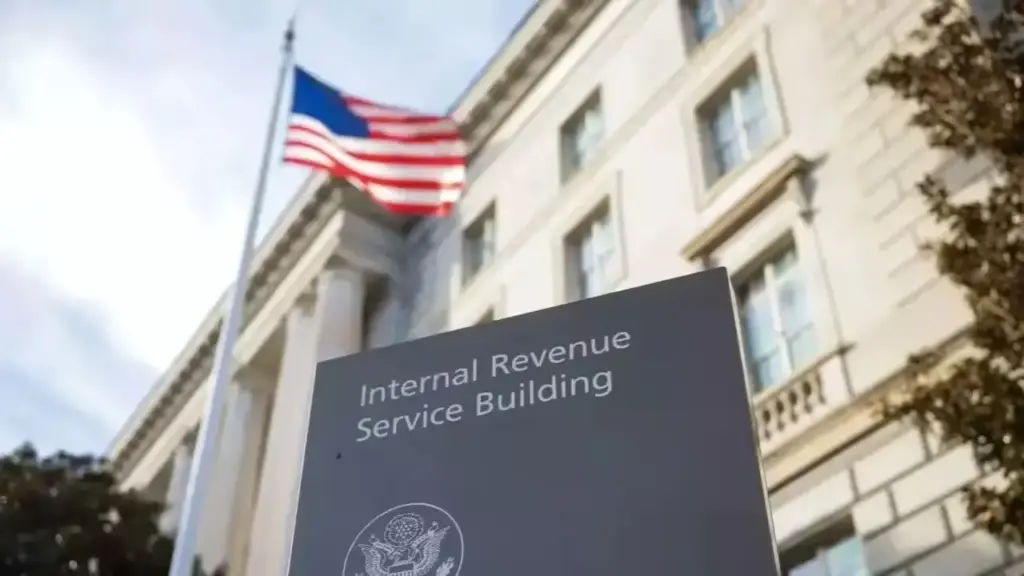Tax year 2026 introduces a suite of reforms offering enhanced deductions and relief for Americans age 65 and older, under the sweeping One Big Beautiful Bill Act (OBBBA). Known as the 2026 Tax Reforms, this measure significantly adjusts standard deduction amounts, adds a new senior-deduction bonus, and introduces updated income-threshold rules for eligibility.

2026 Tax Reforms
| Key Fact | Detail / Statistic |
|---|---|
| New senior-deduction bonus | Up to $6,000 for individuals age 65+ (tax years 2025-2028) |
| Standard deduction increases for 2026 | Single: $16,100; Married Filing Jointly: $32,200; Head of Household: $24,150 |
| Income phase-out for new senior bonus | Begins at MAGI over ~$75,000 (single) / ~$150,000 (joint) |
What the 2026 Tax Reforms Means for Seniors
The term 2026 Tax Reforms refers to the 2026 tax-year reforms under OBBBA that expand deductions and relief for older Americans. The changes seek to ease tax burdens on seniors and adjust the tax code for inflation and demographic shifts. The reforms apply to tax returns filed for 2026 (generally filed in 2027).
A New Bonus Deduction for Age 65 and Older
Under OBBBA, taxpayers who are age 65 or older by December 31 of the tax year may claim an additional deduction up to $6,000 on top of the regular deduction. Importantly, this bonus deduction applies whether or not the taxpayer itemizes, making it accessible to those who take the standard deduction.
For married couples where both spouses qualify, the deduction can reach up to $12,000 (i.e., $6,000 each).

Greater Standard Deductions and Additional Seniors-Specific Allowance
The standard deduction is rising for tax year 2026:
- $16,100 for single filers or married filing separately.
- $24,150 for heads of household.
- $32,200 for married couples filing jointly.
Additionally, for seniors (age 65+) the regular extra standard deduction (distinct from the $6,000 bonus) increases modestly under inflation adjustment. For example, single filers age 65+ can claim an extra $2,050 in 2026.
Who Qualifies and What You Must Know
Age and Filing Status Requirements
To qualify for the senior bonus deduction, you must be age 65 or older by December 31 of the tax year. Filing status (single, married filing jointly, married filing separately, head of household) matters because deduction amounts and phase-out thresholds vary by status.
Income Thresholds and Phase-Outs
The $6,000 bonus begins to phase out at a modified adjusted gross income (MAGI) above ~$75,000 for single filers, or ~$150,000 for married couples filing jointly. As income rises beyond those thresholds, the bonus deduction is reduced gradually until it is eliminated.
For example, according to one analysis: “For married couples earning $200,000 MAGI, each spouse’s $6,000 deduction is reduced by 6% of the amount over $150,000.” Senior taxpayers whose income exceeds the phase-out range may receive little or none of the bonus.
Standard vs Itemized Deductions
One of the key advantages of the bonus deduction is that it is available regardless of whether you use the standard deduction or itemize. This is significant because many seniors already take the standard deduction rather than itemizing.
Interaction with Social Security and Other Tax Triggers
Despite notable relief, the reforms do not eliminate federal income taxes on Social Security benefits. Taxation of Social Security continues under existing thresholds and rules. Therefore, while the deduction may reduce taxable income, other factors (such as combined income and tax-bracket thresholds) remain relevant for seniors.
How Much Relief Can Eligible Seniors Receive?
Consider the following examples for tax year 2026:
- A single filer age 65 or older with MAGI below the phase-out threshold could claim a standard deduction of $16,100 + the senior extra $2,050 + the bonus $6,000 = $24,150 in deductions before other adjustments.
- A married couple filing jointly, both age 65 or older, under the income threshold could claim $32,200 (standard) + $3,300 extra for seniors (two spouses) + $12,000 bonus ($6,000 each) = $47,500 in total deductions.
Such deductions can substantially reduce taxable income and thereby lower federal tax liability—especially for seniors with modest incomes. However, the precise savings depend on factors such as tax bracket, other income, deductions, and whether Social Security benefits are taxable.

Understanding the Broader Context of the Reforms
Inflation-Adjustments and Legislative Background
The deduction increases and bonus for seniors are part of the broader OBBBA, which Congress passed and the Internal Revenue Service (IRS) published as the key inflation-adjustments for tax year 2026. These reforms reflect efforts to update tax thresholds and deduction levels in response to inflation and demographic shifts.
Equity and Policy Implications
Tax-policy experts say the senior deduction increase lowers the tax burden on older Americans, many of whom rely on fixed incomes. For example, according to one think-tank analysis, the changes may encourage retirement-income planning such as Roth conversions in lower-income years.
Critics note the relief is temporary (effective tax years 2025-2028) unless extended by Congress, and it does not address broader issues such as rising healthcare costs and state tax burdens.
Related Links
What Seniors Should Do to Prepare
- Review income projections for 2026. If your MAGI is near or above the phase-out threshold (~$75,000 single / ~$150,000 joint), explore strategies to manage taxable income.
- Ensure filing status and age qualification are correct. Confirm that both spouses qualify if needed and note the age cutoff (December 31, 2026).
- Update documentation and deductions. Even if you normally take the standard deduction, the bonus deduction may apply.
- Consider tax-planning strategies. For example, experts suggest performing Roth conversions in lower-income years—when tax brackets are lower—to reduce future tax burdens.
- Consult a tax professional. The intersection of standard deduction changes, bonus allowances, Social Security taxation and state tax rules can be complex.
Key Caveats and What to Watch
- The bonus deduction for seniors is temporary, covering tax years 2025 through 2028 unless extended by legislation.
- Higher-income seniors may receive diminished benefit due to phase-outs or elimination of the bonus deduction.
- While deductions reduce taxable income, they may not produce tax refunds for those whose federal tax liability is already low or zero.
- State income tax regimes vary: state deductions or taxation rules may reduce the effective federal relief.
- Economic or legislative changes could alter thresholds or eligibility rules; close monitoring is advisable.





